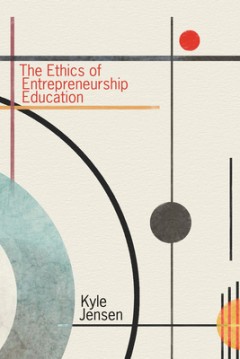Filter by

From sensing to sentience: how feeling emerges from the brain
A new theory of Neurobiological Emergentism that explains how sentience emerges from the brain. Sentience is the feeling aspect of consciousness. In From Sensing to Sentience, Todd Feinberg develops a new theory called Neurobiological Emergentism (NBE) thatintegrates biological, neurobiological, evolutionary, and philosophical perspectives to explain how sentience naturally emerges from the …
- Edition
- -
- ISBN/ISSN
- 9780262381475
- Collation
- 1 online resource
- Series Title
- -
- Call Number
- 612.82 FEI f

Toy theory: technology and imagination in play
A novel interpretation of the history and theory of technology from the perspective of toys, play, and play objects. Toy Theory addresses the relationships between toys and technology in two distinct but overlapping ways: first, as underexamined cultural artifacts and behaviors with significant technical attributes and, second, as playful and toylike dimensions of technology at large. Seth G…
- Edition
- -
- ISBN/ISSN
- 9780262379014
- Collation
- viii, 278 p., ill,;
- Series Title
- -
- Call Number
- 790.133 SET t

Playframes: how do we know we are playing?
An exploration of how we know we're playing and what happens when we don't. Playframes builds on the work of Gregory Bateson and Erving Goffman to take a deep dive into Bateson's primary question: How do we know we're playing? In this book, Celia Pearce addresses this question by building a comprehensive theory of the specific mechanisms that metacommunicate the message “this is play.” T…
- Edition
- -
- ISBN/ISSN
- 9780262381239
- Collation
- xiii, 324 p.,
- Series Title
- -
- Call Number
- 155.418 CEL p

The ethics of entrepreneurship education
Entrepreneurship is now everywhere on college campuses: from classes and contests to accelerators and incubators spread across diverse departments and programs. These activities cultivate tomorrow's Facebooks and Googles but can also put profit in conflict with pedagogy. Should faculty keep information about student start-ups confidential? Should universities, or educators personally, invest in…
- Edition
- -
- ISBN/ISSN
- 9780262380478
- Collation
- xi, 209 p. : ill.
- Series Title
- -
- Call Number
- 174.4 JEN t
Assessment for inclusion in higher education: promoting equity and social jus…
"Bringing together international authors to examine how diversity and inclusion impact assessment in higher education, this book provides educators with the knowledge and understanding required to transform practices so that they are more equitable and inclusive of diverse learners. Assessment drives learning and determines who succeeds. Assessment for Inclusion in Higher Education is written t…
- Edition
- -
- ISBN/ISSN
- 9781003293101
- Collation
- ix, 245 p. : ill
- Series Title
- -
- Call Number
- 371.2601 ASS a

Island tinkerers: innovation and transformation in the making of Taiwan's com…
How Taiwan rose to global prominence in high tech manufacturing, from computer maker to the world's leading chip manufacturer. How did Taiwan, a former Japanese colony and the last fortress of the defeated Chinese Nationalists, ascend to such heights in high-tech manufacturing? In Island Tinkerers, Honghong Tinn tells the critical history of how hobbyists and enthusiasts in Taiwan, including…
- Edition
- -
- ISBN/ISSN
- 9780262380270
- Collation
- ix, 429p. : ill.
- Series Title
- History of computing
- Call Number
- 338.47621390951249 TIN i

Population and the new biology: proceedings of the tenth annual symposium of …
edited by Bernard Benjamin, Peter R. Cox, John Peel.
- Edition
- -
- ISBN/ISSN
- 0120883406
- Collation
- x, 187 p. : ill. ; 24 cm.
- Series Title
- -
- Call Number
- -

The environmental rule of law for oceans: designing legal solutions
Our oceans need a strong and effective environmental rule of law to protect them against increased pressures and demands, including climate change, pollution, fisheries, shipping and more. The environmental rule of law for oceans requires the existence of a set of rules and policies at multiple governance levels that appropriately regulate human activities at sea and ensure that pressures on th…
- Edition
- -
- ISBN/ISSN
- 9781009253741
- Collation
- xxxiii, 380 pages; illustration
- Series Title
- -
- Call Number
- 341.4 POZ t

Schooling the nation: education and everyday politics in Egypt
Telling the story of the Egyptian uprising through the lens of education, Hania Sobhy explores the everyday realities of citizens in the years before and after the so-called 'Arab Spring'. With vivid narratives from students and staff from Egyptian schools, Sobhy offers novel insights on the years that led to and followed the unrest of 2011. Drawing a holistic portrait of education in Egypt, sh…
- Edition
- -
- ISBN/ISSN
- 9781108956031
- Collation
- xii, 270 pages; illustration
- Series Title
- -
- Call Number
- 370.962 RAM s

The individual in the economic and monetary union: a study of legal accountab…
The European Union's response to the financial crisis was designed in a way that prevented EU citizens from holding decision-makers accountable. This book reimagines legal accountability by focusing on the citizen, who should be at the centre of the common interest in the EU, with solidarity and equality as guiding principles.
- Edition
- -
- ISBN/ISSN
- 9781009207942
- Collation
- xxv, 220 pages
- Series Title
- -
- Call Number
- 346.402 BOB t
 Computer Science, Information & General Works
Computer Science, Information & General Works  Philosophy & Psychology
Philosophy & Psychology  Religion
Religion  Social Sciences
Social Sciences  Language
Language  Pure Science
Pure Science  Applied Sciences
Applied Sciences  Art & Recreation
Art & Recreation  Literature
Literature  History & Geography
History & Geography